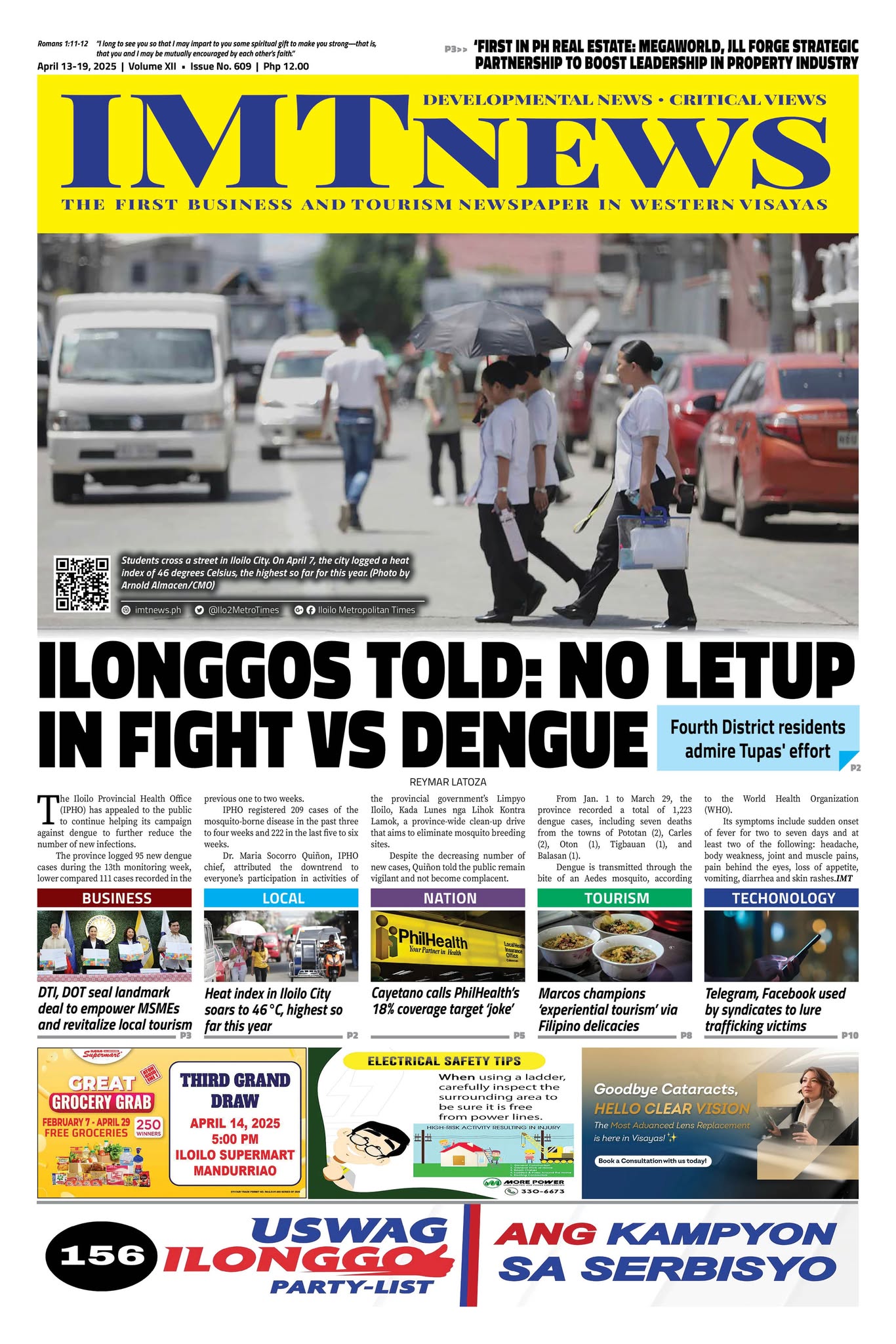The unfolding political drama in Iloilo City has taken on an amusing yet concerning resemblance to a familiar cartoon—Tom & Jerry. Initially positioned as a political ceasefire by convenience, the campaign has quickly evolved into a not-so-subtle spectacle between Mayor Jerry Treñas and former Mayor Jed Mabilog. Ironically, neither of these prominent figures is contesting for office. Instead, they have become de facto proxies, overshadowing their respective party candidates, Cong. Jamjam Baronda and mayoral candidate Raisa Treñas.
When Treñas and Baronda first publicized their compromised agreement, there was widespread disbelief, disruption, discontent, or dismay across Iloilo City. Some wonder if this was more for the candidates’ benefit than for the voters. Like Tom & Jerry’s endless, unproductive chase, what started as an opportunistic pact or mutual concession to avoid opposing candidates quickly became a political circus. Some say that the city’s political discourses now rarely focus on platforms or policies, instead gravitating toward the playful yet pointed exchanges between Jed and Jerry’s loyal supporters.
In campaign sorties across the metropolis and all forms of media, instead of hearing much on robust plans for economic development, education reform, or healthcare improvement, citizens are more often treated to rhetorical theatrics reminiscent of cartoon chase sequences. While Raisa, Jamjam, and their respective vice mayors and councilors deliver their candid or canned speeches, their voices are somewhat muffled beneath the noisy antics of their camps’ vocal advocates. These supporters seem more enthusiastic about revisiting the old and rehashed Jed-Jerry rivalry, turning what should be a significant electoral exercise into a repetitive series of punchlines.
The discord between the two political titans is entertaining but troubling for democracy. Elections should focus on competing ideas, helping voters make informed choices through debates on important issues. Instead, Iloilo City voters find themselves watching political fanfare unfold live, with meaningful discussions lost amid humorous yet superficial banter and side comments. This trivializes the electoral process and undermines the public’s ability to engage critically with their future leaders’ platforms and plans.
Political rivalry is not inherently harmful. On the contrary, it can stimulate healthy debate and encourage candidates to refine their proposals. That is why many Ilonggos wish they had more options for mayor and congressional candidates if they could turn back time. However, the current limitations and dynamics between Treñas and Mabilog, both strategic and dominant power brokers, risk transforming this potentially productive rivalry into a trivial spectacle, overshadowing critical issues. The playful public exchanges between their respective camps are compelling, yet one cannot help but feel that important conversations are being sidelined.
Indeed, research consistently highlights that competitive electoral environments foster accountability and innovation in governance (Besley, 2006). Unfortunately, the scenario unfolding in Iloilo City is creating the opposite effect. The political landscape here is less a spirited debate about policy differences and more a series of wisecracks and punchlines reminiscent of Tom & Jerry’s slapstick animation. While some voters laugh and enjoy the show, the chance for deeper democratic engagement slips away.
Another disturbing consequence of this Jed versus Jerry situation is voter apathy. Studies indicate that voter turnout tends to decrease significantly when elections lose their competitive edge (Franklin, 2004). Why participate when political kingmakers seemingly predetermined outcomes rather than genuine public preference? A vibrant democracy depends on active participation. However, the current, almost cartoonish conflict risks turning this election into a passive experience, reducing voters from decision-makers to spectators.
In this political Tom & Jerry skirmish, the actual candidates—Raisa Treñas et al. and Jamjam Baronda et al.—remain, strangely, relatively muted, their messages sometimes filtered through their respective camps’ spokespeople. Their public appearances do little to clarify their stances, overshadowed by offhand remarks, humorous quips, and nostalgic callbacks to previous political showdowns. The candidates’ silence or minimal direct engagement—highlighted by their often “issue-less” dance videos, clips, or vlogs on social media—only adds to the feeling that their candidacies are just formalities, with the real action happening behind the scenes.
As the Jed-and-Jerry political drama continues, Iloilo City’s democracy risks being weakened. Instead of meaningful debates on real issues, the public is entertained by political spectacle, which does not help voters make informed choices. Elections in the city should focus on critical concerns such as drainage and flood management, waste management, traffic congestion, water supply and sanitation, employment opportunities, education quality and accessibility, healthcare services, environmental pollution, good governance, anti-corruption, abuse of power, fair and reasonable taxation and loans, infrastructure development, land subsidence, affordable housing, zoning and land use, flyovers evaluation, public transportation, urbanization and sustainable growth, purpose and MICE tourism, ease of doing business, inter-agency collaboration, natural and cultural resource management and preservation, cleanliness and beautification, juvenile delinquency and youth empowerment, mental wellness and support services, localization of SDGs, empowerment of the marginalized sectors, local security and law enforcement, and mendicancy and social welfare. These issues, not personal rivalries, should be the focus of campaign discussions.
The intelligent voters in Iloilo City deserve more than a comedic reenactment of past and rehashed political rivalries. Authentic democratic engagement requires candidates to champion concrete platforms, openly address community concerns, and robustly debate critical policies. While Jed and Jerry’s antics provide entertainment, we pray that these will not be able to distract voters from demanding accountability, substance, and genuine commitment from those who aspire to lead the city forward.
Doc H fondly describes himself as a ‘student of and for life’ who, like many others, aspires to a life-giving and why-driven world that is grounded in social justice and the pursuit of happiness. His views herewith do not necessarily reflect those of the institutions he is employed or connected with.






